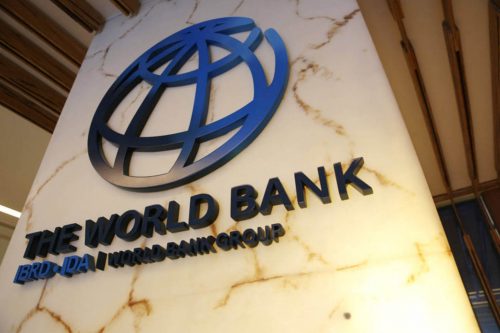In a quest to catalyze Nigeria’s economic progress, the World Bank, in a strategic partnership with the Nigerian federal government, is embarking on an ambitious mission to facilitate the seamless rollout and registration of digital national IDs for every Nigerian citizen. Shubham Chaudhuri, the World Bank’s dedicated Country Director for Nigeria, unveiled this far-reaching collaboration during a noteworthy dinner event in Abuja, held in conjunction with the Ministry of Communications and Digital Economy.
Chaudhuri illuminated the transformative potential inherent in harnessing digital technologies, citing their potential to drive monumental changes in various sectors of the economy. Emphasizing the World Bank’s core mandate of eradicating poverty, improving quality of life, and generating ample employment opportunities for Nigerian youth, Chaudhuri asserted, “One of the areas that we think have the greatest potential is the area of using digital technologies to transform.”
He underscored the pivotal role of digital national IDs in catalyzing this transformation, as these IDs lay the foundation for inclusive digital advancement. Chaudhuri expounded, “So, one of the main partnerships we have is working with National Identity Management Commission (NIMC) to ensure the rollout of the registration, so that all 220 million Nigerians have a digital national ID, beginning — of course — with all people of working age, and I think the target for that is at least 148 million people by the middle of next year.”
Chaudhuri’s comprehensive vision extends beyond ID issuance, encompassing the critical need for robust broadband infrastructure. He illuminated the intricate relationship between broadband connectivity and digital technologies, asserting that without widespread access to broadband, a digital divide could emerge. To address this, he acknowledged the World Bank’s support for progressive policies and regulations that pave the way for private investment in broadband infrastructure, particularly in the form of fiber optic cables.
Navigating the intricacies of fiber optic cable regulation presents challenges in expanding digital infrastructures across Nigeria’s diverse landscape. Chaudhuri accentuated the necessity of aligning regulations with private investors’ interests to foster robust expansion.
Meanwhile, Bosun Tijani, Nigeria’s Minister of Communications and Digital Economy, shared a momentous development in the nation’s digital ecosystem. Tijani revealed that the federal government has successfully secured a substantial $500 million loan earmarked for a local funding program. This pioneering initiative seeks to amplify innovation and entrepreneurship within Nigeria’s burgeoning digital sector.
Tijani articulated the government’s intention to utilize the $500 million funding to spur innovation and entrepreneurship, localized within Nigeria’s borders. He articulated, “We’ve got access to about half a billion dollars to start local funding.” Collaborating closely with the Bank of Industry (BoI), the Ministry of Communications and Digital Economy aims to channel this funding towards authentic Nigerian businesses, nurturing their growth and advancement.
In alignment with the government’s objective to foster homegrown enterprises, Tijani articulated, “We want to ensure that those businesses that will benefit are true, real Nigerian businesses.” The minister outlined a multifaceted approach to ensure the effectiveness of this initiative. By harnessing the power of local funding, the government seeks to foster a supportive environment where Nigerian innovators can thrive.
As the local funding initiative gains momentum and expands in scope, Tijani envisions its transformative impact on the nation’s digital landscape. He affirmed, “So, the government is not just going to put half a billion and that’s it, it can actually bring more investors to heart as we have more money and more of our innovators can have access to resources.”









